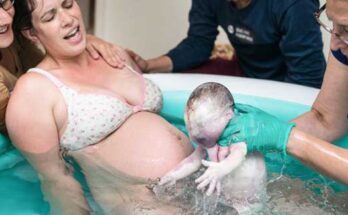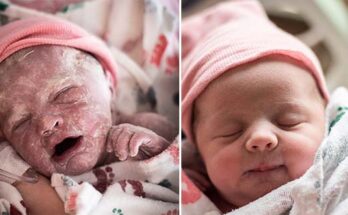Science has long since educated us on the impact everything we drink and eat has upon our unborn child, but what about your emotions?
Research conducted by the Association for Psychological Science indicates that the mother’s emotions can also have an impact on a foetus that is six months or older. The way you feel during your pregnancy can have a significant role in determining your child’s attitudes and views of life as she grows up.
But getting back to what possibly got you hooked, how do your tears affect your little one? It all depends on the type of mother you are, and the following categories will give you a decent indication of how your emotions are shaping your child and influencing the decisions he will make for the rest of his life.
If You’re A Stressed Mom
It doesn’t matter how well you have timed or planned your pregnancy – stressors are bound to pop up every now and then. Stress during pregnancy can be brought on by a number of factors, including your physical and mental health, concerns for the welfare of your unborn child, doctor appointments and testing, career ups and downs, family dynamics, older children, and others.
Your body creates a stress hormone when you’re depressed, and even while you’re correct in thinking that emotions and feelings cannot cross the placenta, those bothersome stress chemicals may. If your baby’s developing body is exposed to this hormone frequently, he or she may get acclimated to experiencing chronic stress.
Thus, it is important as a pregnant woman to listen to your body and eliminate stressors that are hampering your everyday life.
If You’re A Depressed Mom
If crying spells are consistent and last a long time each time, they might signal a separate underlying issue like prenatal depression.
The babies born to clinically depressed mothers are roughly 1.5 times more likely to develop depression as well as emotional setbacks such as aggression, by the age of 18 years.
If that wasn’t alarming enough, depression could also have an impact on the development of your baby inside the womb. However, this is more in association with the consistency of your depressed feelings rather than having depression itself. A study found that if a mother was emotionally stable before getting pregnant and remained so after giving birth, the baby’s development would be typical. Even if a mother experienced depression before, during, or after giving birth, the kid would still develop normally.
However, if the consistency of her emotions changed, for example, the mother was healthy while pregnant but suffered postpartum depression (or vice versa), then this compromised the baby’s development.
If You’re A Mom Who Resents Her Pregnancy
If you’re struggling with resentment for the small being growing inside your womb, then this will only make matters worse. According to studies, mothers who experienced no bond or attachment for their unborn child had children who grew up with emotional problems.
If You’re A Mom With Those Occasional Bad Days
Having those occasional sad days in the course of your nine months is perfectly normal. Anyone can obtain them. Don’t let this worry you. These sporadic, infrequently depressing days won’t have any long-term effects on your tiny adore.
So Now What?
If you’re a mom experiencing more than just those occasional bouts of blues, don’t be afraid. Get that help you need to be happy! Nobody is expecting you to abruptly quit your job because of all the stress in your life. But make an effort to comprehend and identify the signs of depression, then speak with your doctor about antidepressants that are safe for expectant mothers. Yes, they exist!
Pregnancy is important, If Mommy cries, baby cries, If Mommy is happy, baby is happy. Husbands and family need to take care pregnant mama to be.. so mama can grow a healthy baby.





